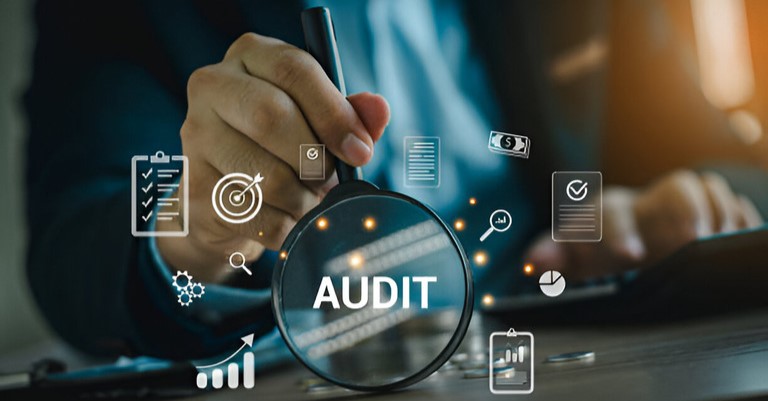A financial audit can be a daunting experience for many organizations, but it doesn’t have to be. By following some tips for understanding financial audit processes and preparing adequately, you can transform this potentially stressful event into a constructive experience. This article will provide you with eight essential tips to help ensure your financial audit is positive and productive. We’ll cover the importance of preparation, maintaining clear and organized records, effective communication, compliance with regulations, the role of internal audits, managing the financial audit timeline, and the value of professional guidance.
Prepare Thoroughly in Advance
Preparation is the cornerstone of a smooth financial audit. Start by understanding the scope and objectives of the audit. Familiarize yourself with the auditing standards and guidelines that will be applied. Following these tips for understanding financial audit processes will help you anticipate the auditor’s requirements and expectations, setting a strong foundation.
Begin your preparation by conducting an internal review of your financial statements and records. Ensure that all financial data is accurate and up-to-date. Reconcile all accounts and make necessary adjustments. This proactive approach can help identify and rectify potential issues before the audit begins, reducing the risk of surprises and helping you stay on track with the expected financial audit timeline.
Gather all relevant documents and records in advance. This includes financial statements, bank statements, invoices, receipts, payroll records, and any other documents that may be relevant to the audit. Organize these documents systematically to make them easily accessible. A well-organized set of records can significantly streamline the audit process, saving time and reducing stress for both you and the auditor.
In addition to organizing your documents, prepare a brief explanation of any unusual transactions or significant changes in your financial position. This can help the auditor understand the context of these transactions and avoid misunderstandings. Being proactive in providing explanations can demonstrate your transparency and willingness to cooperate, which can positively influence the auditor’s perception of your organization.
Maintain Clear and Organized Records
One of the most critical factors in a successful financial audit is maintaining clear and organized records. Accurate and up-to-date records not only facilitate the audit process but also reflect the overall health and efficiency of your organization.
Develop a robust record-keeping system that includes categorization and systematic storage of all financial documents. Ensure that all transactions are documented and supported by relevant evidence such as invoices, receipts, and contracts. Consistent documentation practices can prevent discrepancies and make it easier to trace and verify transactions during the audit.
Regularly update your records to reflect the most current financial information. This includes recording all transactions promptly and making necessary adjustments for any errors or discrepancies. Timely updates can prevent the accumulation of unresolved issues and ensure that your financial records are always audit-ready.
Implement internal controls to monitor and review your record-keeping practices. Regular internal audits can help identify and address potential issues early, reducing the risk of problems during the external audit. Internal audits also provide an opportunity to assess the effectiveness of your record-keeping system and make improvements as needed.
Foster Effective Communication with Auditors
Effective communication is essential for a positive financial audit experience. Establish open lines of communication with your auditors from the outset. This includes being responsive to their inquiries, providing requested information promptly, and keeping them informed of any significant changes or developments.
Schedule regular meetings with your auditors to discuss the progress of the audit and address any concerns or questions they may have. These meetings can provide valuable opportunities to clarify expectations, resolve issues, and ensure that the audit is proceeding smoothly.
Be transparent and forthcoming in your interactions with auditors. If you encounter any difficulties or challenges during the audit, communicate these openly and seek guidance or assistance as needed. Demonstrating a collaborative attitude can help build trust and foster a positive working relationship with your auditors.
Provide clear and concise explanations for any unusual transactions or discrepancies. Anticipate potential questions and prepare detailed explanations in advance. This proactive approach can help prevent misunderstandings and demonstrate your commitment to transparency and accuracy.
Ensure Compliance with Regulations
Compliance with relevant regulations and standards is crucial for a successful financial audit. Stay informed about the latest regulatory requirements and ensure that your financial practices and records are in full compliance.
Regularly review and update your policies and procedures to align with current regulations. This includes staying abreast of changes in tax laws, accounting standards, and industry-specific regulations. Implementing a robust compliance framework can help mitigate risks and ensure that your organization operates within legal and regulatory boundaries.
Conduct periodic compliance audits to assess your adherence to regulatory requirements. These internal audits can help identify and address any gaps or deficiencies in your compliance practices. Regular compliance audits can also demonstrate your commitment to maintaining high standards of governance and accountability.
Provide training and resources to your staff to ensure that they are knowledgeable about relevant regulations and compliance requirements. This includes offering regular training sessions, distributing compliance manuals, and providing access to external resources and expertise. Educating your staff can help foster a culture of compliance and ensure that everyone in your organization understands their role in maintaining regulatory standards.
Utilize Internal Audits as a Preemptive Measure
Internal audits are a valuable tool for preparing for an external financial audit. By conducting regular internal audits, you can identify and address potential issues before they become significant problems.
Establish an internal audit program that includes periodic reviews of your financial records, processes, and controls. These internal audits should be conducted by qualified and independent individuals who can provide an objective assessment of your financial practices.
Use the findings from internal audits to make necessary improvements and corrections. Address any discrepancies, errors, or weaknesses identified during the internal audit process. Implementing corrective actions can help strengthen your financial practices and reduce the risk of issues during the external audit.
Document the results of your internal audits and the actions taken to address any findings. This documentation can be valuable during the external audit, as it demonstrates your proactive approach to maintaining accurate and reliable financial records. Providing auditors with evidence of your internal audit activities can also enhance their confidence in your organization’s financial practices.
Manage Audit Timelines Effectively
Effective financial audit timeline management is essential for a smooth and successful financial audit. Establish a clear timeline for the audit process and communicate this timeline to all relevant parties.
Begin by setting a target date for the completion of the audit and work backward to establish key milestones and deadlines within the financial audit timeline. This includes setting deadlines for the preparation and submission of documents, scheduling meetings with auditors, and allowing time for the review and resolution of any issues that may arise.
Allocate sufficient time for each phase of the audit process, including planning, fieldwork, and reporting, as part of the overall financial audit timeline. Avoid rushing through any phase, as this can lead to errors and oversights. A well-planned and paced audit process can help ensure that all aspects of the audit are thoroughly and accurately addressed.
Communicate the timeline to your staff and ensure that they understand their responsibilities and deadlines. Provide regular updates on the progress of the audit and any changes to the timeline. Keeping everyone informed can help prevent delays and ensure that the audit stays on track.
Seek Professional Guidance and Support
Professional guidance and support can be invaluable during a financial audit. Engaging the services of a qualified accountant or auditor can provide you with expert advice and assistance throughout the audit process. Here are some tips for understanding financial audit processes that can help you prepare and respond effectively.
A professional can help you prepare for the audit by reviewing your financial records, identifying potential issues, and providing recommendations for improvement. They can also assist with the organization and presentation of documents, making it easier for auditors to access and review the necessary information.
Understanding the typical financial audit timeline is crucial, and a professional can help you navigate each stage efficiently. During the audit, they can act as a liaison between your organization and the auditors, facilitating communication and addressing any questions or concerns that may arise. Their expertise can help ensure that the audit process proceeds smoothly and efficiently.
After the audit, a professional can help you understand the findings and recommendations of the auditors. They can provide guidance on implementing corrective actions and improving your financial practices. Engaging professional support can help you derive maximum value from the audit process and enhance your organization’s financial management.
Reflect and Improve Post-Audit
The conclusion of the audit is an opportunity to reflect on the process and identify areas for improvement. Conduct a post-audit review to assess the effectiveness of your preparation and the overall audit experience.
Gather feedback from all parties involved, including your staff and the auditors. Identify what worked well and what could be improved. Use this feedback to refine your preparation and processes for future audits.
Implement the recommendations provided by the auditors and address any findings or deficiencies. Develop an action plan to guide the implementation of corrective actions and monitor progress regularly. Making necessary improvements can help strengthen your financial practices and enhance your readiness for future audits.
A positive financial audit experience is achievable with thorough preparation, clear and organized records, effective communication, compliance with regulations, proactive internal audits, efficient timeline management, professional guidance, and a commitment to continuous improvement. By following these eight essential tips, you can transform the audit process into a constructive and beneficial experience for your organization. Embrace the audit as an opportunity to enhance your financial practices, demonstrate transparency and accountability, and strengthen your overall financial management.
How Insights Can Help
To expedite the audit process, Insights follows essential tips for understanding financial audit processes that help streamline and clarify each step. Our approach focuses on maintaining transparency and accountability throughout the financial audit timeline, ensuring timely and thorough completion.
By implementing these crucial pointers, Insights guarantees a positive audit experience by surpassing audit expectations and enhancing financial management. We encourage accepting audits as an opportunity to improve accounting procedures and reaffirm our commitment to operational excellence.






